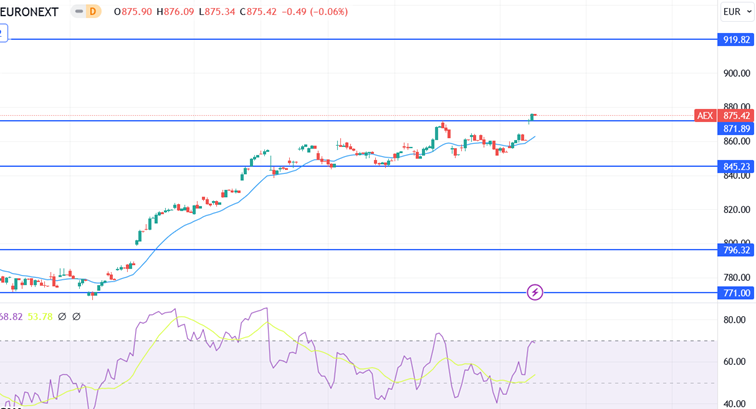Publication date: April 14, 2024
What is Ethereum?
Ethereum, known by its acronym ETH, is a pioneering cryptocurrency and blockchain platform distinguished by its ability to execute decentralized applications (dApps) and smart contracts. This functionality expands the capabilities of the blockchain far beyond the initial use of Bitcoin as digital money.
How does Ethereum work?
Central to the operation of Ethereum is the Ethereum Virtual Machine (EVM), which allows the execution of complex scripts powered by the network of computers running the Ethereum blockchain. Ethereum users can use Ether, the platform's native cryptocurrency, to pay transaction fees and services within the network. This model lends tremendous flexibility and makes Ethereum attractive to developers.
Main features of Ethereum
The main features of Ethereum include:
- 1. Programmable blockchain: Ethereum provides a platform, where developers can build and manage decentralized applications (dApps).
- 2. Smart Contracts: These self-executing contracts are written in code and automate the execution of agreements under specific conditions, without third-party intervention.
- 3. Ether (ETH): Ethereum's native cryptocurrency, used as a means of payment for transaction fees and computational services on the network.
- 4. Proof of Stake (PoS) consensus mechanism: Ethereum has switched from Proof of Work to Proof of Stake, which promotes energy efficiency and encourages users to keep the network secure through strikes.
- 5. Flexibility and applicability: In addition to, supporting financial transactions, the network can support a wide range of applications, from financial services to decentralized autonomous organizations (DAOs) and more.
- Great developer community: Ethereum boasts an extensive and active community of developers who are constantly working to improve and expand the platform's capabilities.
History of Ethereum
Ethereum was launched in the year 2015 by Vitalik Buterin, to create a platform offering more functionalities than Bitcoin. The development of Ethereum marked a turning point in the crypto industry with the introduction of smart contracts. These contracts automate contractual arrangements, making transactions faster, cheaper, and with less chance of human error.
What are the recent developments around Ethereum?
Recently, Ethereum has undergone several updates, including the long-awaited move to a Proof of Stake (PoS) consensus algorithm, known as "The Merge. This update aims to improve the energy efficiency of the network and eliminate the energy-intensive Proof of Work (PoW) method. The implementation of these changes has led to increased activity on the network and renewed investor interest.
price development of Ethereum
Ethereum has experienced a remarkable share price development since its launch in 2015. The launch was followed by a rapid rise in share price. The highest point was reached in the fall of 2021 when the price reached nearly $4,000. That was a period of high volatility, caused partly by uncertainties related to regulations and market dynamics. The price fell and stabilized in late 2022.
Recently, Ethereum again showed significant gains, especially in the run-up to and following the implementation of "The Merge," the transition from Proof of Work to Proof of Stake, which promises to significantly improve the efficiency and sustainability of the network. These technological advances and the increasing adoption of dApps have made Ethereum a favorite choice among investors and remain a key driver of its market price fluctuation.
Advantages of Ethereum
-
1. Flexibility and Broad Applicability: Ethereum supports not only financial transactions but also provides a platform for a wide range of applications such as decentralized apps (dApps) and smart contracts.
2. Large Developer Community: The extensive and active community fosters constant innovation and expansion of the network.
3. Smart Contracts: Ethereum allows the creation of self-executing contracts without the need for intermediaries, reducing costs and risks.
4. Proof of Stake (PoS): The recent transition to the PoS consensus mechanism increases the energy efficiency of the network and enhances its security.
5. Growing Adoption: Ethereum is the preferred choice for many DeFi platforms and businesses seeking blockchain solutions, strengthening the growth and value of the network.
Disadvantages of Ethereum
-
1. Scalability Issues: High network activity can lead to increased transaction fees and slower transactions, although the shift to PoS has partially addressed these issues.
2. Decentralization Concerns: The transition to PoS has raised questions about the level of decentralization, as holding large amounts of ETH may grant more influence within the network.
3. Complexity for Users: The technical aspects of Ethereum can be a barrier for new users and investors.
4. Competition from Other Blockchains: Although Ethereum is a leader, other platforms like Solana and Polkadot are attempting to offer similar services with faster transaction times and lower costs.
Conclusion
Ethereum remains a crucial player in the cryptocurrency market, thanks to its versatility and strong community. As the technology continues to evolve and the adoption of decentralized applications increases, Ethereum is expected to maintain a central role in the digital economy of the future. Innovations such as 'The Merge' and the ongoing expansion of the ecosystem make Ethereum an attractive option for both developers and investors.
Disclaimer: Investing involves risk. Our analysts are not financial advisors. Always consult an advisor when making financial decisions. The information and tips provided on this website are based on our analysts' own insights and experiences. They are therefore for educational purposes only.








